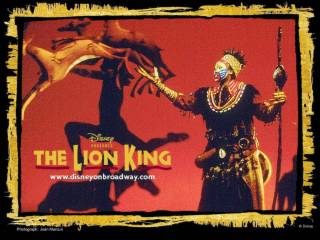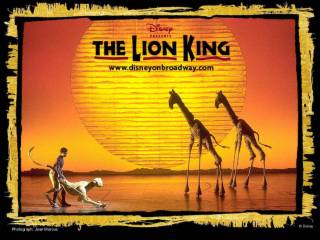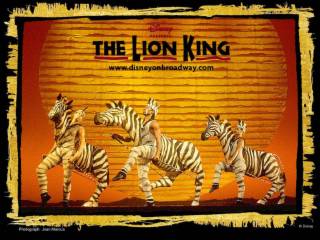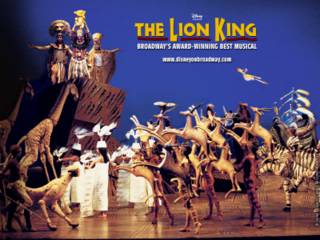if you don't see god in all, you don't see god at all
during the time i've been back, i've pigged out a lot during all the deepavali visiting that i've been doing. went for dya singh's concert with anantya. she mentions a funny incident that happened that day. the lesson i've learnt is to not ignore those people who come up to you with a proposition of some sort, because it actually might be REALLY free... anyhow, dya singh's concert was really good, and so i decided to bring my mom along for it y'day. his style is quite different i must say. mostly qawwali style, but i guess the uniqueness comes from the fusion of western elements. and the messages behind his songs are worth mulling over.
i leave you with an interesting analogy that i found whilst reading al-jazeerah.
Propaganda is consumed innocently, like drinking a glass of milk that has been contaminated with small drops of urine; the taste, color, odor of the milk is sustained, so the victims remain unaware. However, the perception changes once the consumer is alerted to the fact that urine was added to it. The consumer is disgusted as milk diluted with urine is the same as pure urine; not fit for consumption; they are both in the same category of lies!
the circle of life...
the above goes nowhere near doing justice to the spectacle that was the opening song of the lion king: the musical. the musical does not try and make the characters look cute. the costume design did not try to fool anyone into thinking that there aren't any humans involved. as you can see from the pictures, the costumes are simply exquisite. i'd pay to watch it again, if just for the first 5 minutes. the musical was truly one of the best experiences of my life.
the rest of it was an equally magical experience, especially the scene in which simba speaks to the ghost of his father. what wouldn't i give to watch it again...
critical reflection
This report charts my emotional, spiritual and mental meanderings through the course of this module on Middle Eastern Politics and Society. Throughout this module, I have been exposed to many a new way of thinking, and my perspectives have been multiplied. That which I thought to be undeniable truths have turned out to be a matter of opinion. Now, more so than ever, after having had to chart my thoughts in words do I believe that the path of our lives shape our values and beliefs. Those themes which I consider to be the most important from my journal and those that keep cropping up through out the course are included here for your perusal.
Prior to studying this module, I have never looked at the
To me, the most alien aspect of Middle Eastern culture would have to be the place of women in society. Having been raised to believe that men and women are equal and that gender should not be a barrier in any aspect, the way that Middle Eastern women are regarded is quite puzzling. I believe the reason for the lack of women’s rights stems from the lack of evolution of Islam. My view is that there is too much of a puritanical streak in the Islamic clerics in the
Prior to this module, most of my exposure to the current affairs in the
Coming from
Up till this present moment, I do not know if the Islamic paradigm is so alien, or is it being interpreted to suit the purposes of the players of the political game in the
My belief that for a democracy to work, there would need to be separation of church and state, has yet to be challenged. However, from what I have learnt this semester, for democracy to work in the
I used to believe that the reason for the violence between the Arabs and Israelis was simply because the Arabs were being intolerant of a non-Muslim state in their region. However, after reading about the Balfour Declaration and studying the emergence of the state of
The cultural differences between the
The above are some of the thoughts that have occurred to me due to the stimulation of this module, and having listed them, I realise the ways in which my beliefs have been challenged.
my next post will be a lot more interesting, i promise. it'll be a list of the highlights of the lion king musical.
wandering through the desert for 40 years?
blue ocean strategy
Description:
"Despite a long-term decline in the circus industry, Cirque du Soleil profitably increased revenue twenty-two-fold over the last 10 years by reinventing the circus. Rather than competing within the confines of the existing industry or trying to steal customers from rivals, Cirque developed uncontested market space that made the competition irrelevant. Cirque created what the authors call a blue ocean--a previously unknown market space. In blue oceans, demand is created rather than fought over. There is ample opportunity for growth that is both profitable and rapid. In red oceans--that is, in all the industries already existing--companies compete by grabbing for a greater share of limited demand. As the market space gets more crowded, prospects for profits and growth decline. Products turn into commodities, and increasing competition turns the water bloody. There are two ways to create blue oceans. One is to launch completely new industries, as eBay did with online auctions. But it's much more common for a blue ocean to be created from within a red ocean when a company expands the boundaries of an existing industry. In studying more than 150 blue ocean creations in over 30 industries, the authors observed that the traditional units of strategic analysis--company and industry--are of limited use in explaining how and why blue oceans are created. The most appropriate unit of analysis is the strategic move, the set of managerial actions and decisions involved in making a major market-creating business offering. Creating blue oceans builds brands. So powerful is blue ocean strategy, in fact, that a blue ocean strategic move can create brand equity that lasts for decades."
it is an interesting concept. however, it is quite sad that in singapore, venturing into the unknown isn't encouraged. oh ya... the government does yak a lot about entrepreneurship and all that jazz, but really... think about it. it is a working example of cognitive dissonance. all life long, the citizens are brainwashed with the mantra "the gahmen (aka the party in power) is your father and mother. obey the gahmen and follow the rules. do what we tell you to do. go against us and we'll crush you (not literally la.. just a few lawsuits that will leave you feeling worthless since we have decided that a person's self worth shall be determined by the amount of money he/she has)" ok.. that was a long parenthesised comment. heck it. you know what i'm getting at. i do think that singapore is really small and the only way to attain economies of scale is by filtering the population into certain key industries. but the key to a good investment portfolio is diversification and not to dump all your eggs into 3 or 4 baskets. oh well, the government has its job cut out for it. anyways i digress. my point was that the government propaganda emphasises obedience. follow the path that has been laid for you. inconsistent with innovation and that pioneering spirit that are needed for blue ocean entrepreneurship innit?









